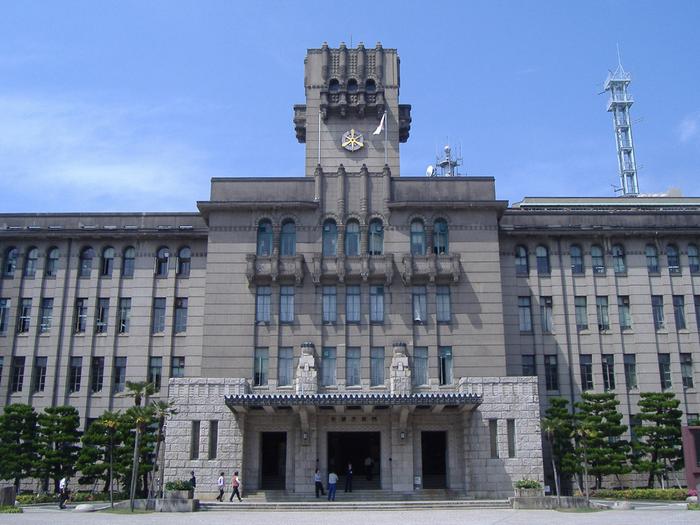Leveraging AI to Combat the Global Challenge of Antimicrobial Resistance
Antimicrobial resistance (AMR) is an escalating global crisis that presents significant challenges to modern medicine. It occurs when pathogens, such as bacteria, viruses, fungi, and parasites, evolve and adapt over time, rendering standard biopharmaceutical interventions ineffective. This evolutionary phenomenon has dire consequences, especially for treating common infectious diseases and complex conditions like HIV, tuberculosis, and […]


Antimicrobial resistance (AMR) is an escalating global crisis that presents significant challenges to modern medicine. It occurs when pathogens, such as bacteria, viruses, fungi, and parasites, evolve and adapt over time, rendering standard biopharmaceutical interventions ineffective. This evolutionary phenomenon has dire consequences, especially for treating common infectious diseases and complex conditions like HIV, tuberculosis, and malaria. The rising tide of AMR not only complicates treatment procedures but also dramatically elevates the risks of severe illness, transmission of disease, and mortality.
The impact of AMR is disproportionately severe in low-to-middle-income countries, where healthcare systems often struggle with limited resources, poor water quality, and inadequate sanitation. These conditions create an environment where the spread of resistant organisms occurs rapidly, exacerbated by the improper disposal of medical waste and the overuse of antimicrobials in agriculture and livestock. As resistant strains of pathogens proliferate, the effectiveness of existing treatment regimens declines, leading to a vicious cycle of increased healthcare burdens and costs.
In an effort to combat this burgeoning crisis, the World Health Organization (WHO) initiated a Global Action Plan in 2015, which envisioned a coordinated international response to AMR. A significant milestone of this action plan was the commitment of 194 WHO member nations to develop tailored One Health National Action Plans (NAPs). The One Health approach emphasizes the interconnectedness of human, animal, and environmental health, acknowledging that strategies to tackle AMR must transcend disciplinary boundaries and promote collaboration among sectors.
Despite this ambitious framework, many countries, particularly those with fewer resources, face sophisticated challenges in developing effective NAPs. A lack of logistical infrastructure, insufficient funding, and limited access to vital information hampers the creation of informed and comprehensive policies. In response to these challenges, an innovative solution has emerged from a collaborative research initiative co-led by Professor Yong-Guan Zhu of the Chinese Academy of Sciences and Professor David Graham of Durham University in the UK.
This international team has developed an artificial intelligence tool specifically designed to support the formulation of AMR-related policies. Dubbed AMR-Policy GPT, this advanced language model leverages extensive data gleaned from policy documents across 146 countries, facilitating a more accessible and informed decision-making process for policymakers. The tool operates similarly to widely-used AI chatbots, such as ChatGPT, but distinguishes itself by emphasizing current, accurate, and contextually relevant information related to AMR.
Professor Graham articulated the potential of this tool, highlighting its role in guiding National Action Plans in regions where local data and infrastructure are lacking. The AMR-Policy GPT is envisioned as a sophisticated assistant for policymakers, offering a repository of well-referenced information from diverse disciplines, all at their fingertips. Crucially, the tool is designed to evolve continuously, ensuring that it remains updated with the latest scientific and policy developments. This aspect is particularly vital in the rapidly changing landscape of healthcare and infectious diseases.
While the AMR-Policy GPT has the potential to be transformative in policymaking, the research team emphasizes that it is not a substitute for comprehensive NAP development. Instead, it serves as an “intelligent” information source—an invaluable resource akin to having a knowledgeable advisor readily available during the policymaking process. By fostering greater knowledge-sharing among countries and providing crucial insights into the environmental dimensions of AMR, the tool can enhance collaborative efforts against this pressing issue.
The researchers’ future plans involve further honing the capabilities of the AMR-Policy GPT by integrating additional scientific knowledge alongside policy information. This ongoing enhancement seeks to create an even more robust resource that can better support policymakers in their efforts to mitigate AMR’s impact. As the volume of available data on AMR continues to expand, the role of AI in synthesizing and interpreting this information becomes increasingly vital.
The implications of this research extend beyond immediate policy development; they also resonate with the broader context of global health and environmental stewardship. By recognizing the multifactorial nature of AMR—where health, ecological systems, and societal factors intersect—the AMR-Policy GPT embodies a holistic approach to tackling a deeply entrenched problem. As AMR poses a growing threat to health security worldwide, innovative solutions that promote cross-sectoral collaboration will be essential in reversing the tide of resistance and safeguarding public health.
As this groundbreaking research is disseminated, stakeholders across various sectors are encouraged to explore the AMR-Policy GPT and harness its capabilities to foster evidence-based policymaking. The tool’s launch is a significant step towards building a more resilient global response to AMR, enabling better preparedness and proactive measures to combat the looming public health crisis. With continued support and refinement, the AMR-Policy GPT could play a pivotal role in shaping a healthier future.
The development of this AI tool emphasizes the necessity for sustainable, integrated strategies in fighting AMR. By focusing not only on human health but also on animal care, agriculture, and environmental safety, the One Health approach can lead to a comprehensive understanding of AMR dynamics. This is paramount as the interconnected web of life forms and ecosystems underscores the urgency of a unified response to the challenge posed by antimicrobial resistance.
As AMR continues to rise, it is imperative for countries, especially those with fewer resources, to embrace innovative technologies such as the AMR-Policy GPT. By leveraging the best available data and sophisticated AI tools, policymakers can make informed decisions that ultimately contribute to the global fight against resistant pathogens. The stakes could not be higher, and collaborative efforts to evolve and refine these tools will determine how well prepared we are to face the challenges ahead in advancing public health.
In a rapidly changing world where infectious diseases are on the rise and antimicrobial treatments are losing their effectiveness, embracing technological advancement in public health initiatives has never been more critical. The pioneering work exhibited through the AMR-Policy GPT signals a future where informed, evidence-based decisions can bridge the gaps in knowledge and resources that frequently thwart effective policy development in the context of antimicrobial resistance.
Subject of Research: AMR Policy Development
Article Title: Using Large Language Models to Assist Antimicrobial Resistance Policy Development: Integrating the Environment into Health Protection Planning
News Publication Date: 8-Jan-2025
Web References: AMR-Policy GPT Tool
References: DOI 10.1021/acs.est.4c07842
Image Credits: N/A
Keywords: Antimicrobial resistance, One Health, Public health policy, Artificial Intelligence, Global Health, Infectious diseases.
What's Your Reaction?


































